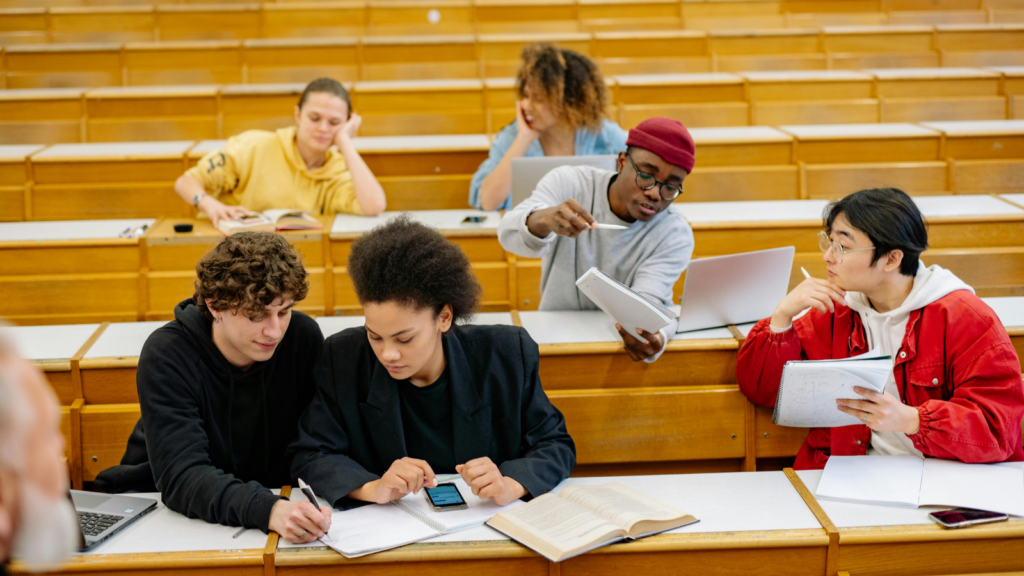In the vast universe of knowledge, everyone’s journey to understanding is unique. It’s a journey shaped by various learning strategies, each with its own strengths and quirks. If you’ve ever wondered why some people can easily memorize pages of text, while others learn better by doing, you’re about to dive into the fascinating world of learning strategies.
From visual to auditory, from kinesthetic to reading/writing, the different learning strategies open up a plethora of ways to process information. These strategies aren’t just academic buzzwords, they’re the keys to unlocking your full learning potential. So, get ready to explore and understand the diverse approaches to learning, because it’s not about how much you learn, it’s about how well you do it.
Types of Learning Strategies
The Importance of Effective Learning
Effective learning strategies unlock a learner’s full potential. They allow individuals to process and understand information optimally, which, in turn, drives academic and professional success. For instance, mnemonic devices, one form of learning strategy, aid in memory enhancement. By associating information with visual images, a rhyme, or a phrase, learners find it easier to recall details. Similarly, distributed practice—spreading out learning over time—also improves long-term retention of information.
Key Types of Learning Strategies
Following the exploration of the importance of effective learning strategies and primary learning styles, it’s crucial to look at specific categories that learning strategies fall into. These include cognitive, metacognitive, and social learning strategies.
Cognitive Learning Strategies

Cognitive learning strategies center around mental activities and processes which facilitate learning. These strategies, influenced by psychology, involve methods such as rehearsal, elaboration, and organization. Rehearsal, an act of repeating information verbally or mentally, works for short-term memory. Elaboration, giving meaningful context to new material, aids long-term memory retention.
Similarly, organization strategies such as clustering related information together into easily digestible chunks can enhance comprehension. These cognitive strategies foster understanding and memory, forming the groundwork for deeper learning.
Metacognitive Learning Strategies
Metacognitive learning strategies refer to practices that help learners maintain awareness and control over their cognition during the learning process. It includes planning, monitoring, and evaluating one’s understanding. Planning involves deciding what to learn, how to learn, and allocating resources. Monitoring includes constantly checking one’s understanding during the learning process, while evaluation happens after a learning instance, enabling learners to identify areas of improvement. These strategies allow individuals to better understand how they think, learn, and perform, facilitating an active role in their learning process.
Social Learning Strategies

Social learning strategies emerge from interaction between learners. This includes cooperative learning, discussion, feedback, and observation. In cooperative learning, learners work collaboratively towards learning goals. Discussion stimulates the construction of knowledge through shared viewpoints. Feedback provides learners with an outside perspective, aiding in self-improvement.
Observation, on the other hand, involves learning by watching the behavior and actions of others. Through these collective learning experiences, individuals engage in a dynamic, socialized learning process, enriching their understanding and fostering communicative and interpersonal skills.
Evaluating the Impact of Learning Strategies
Measuring Academic Improvement & Personal Development

Assessments for measuring academic improvements reveal a detailed picture of how effectively a learning strategy works. The trend of grades, from quizzes, classroom participation, to exams, serves as quantifiable data to track scholastic progress. For example, a jump in science grades signifies the potency of a cognitive-based strategy for a student with preferences towards logical understanding. Furthermore, the improvement in problem-solving tasks indicates the success of a metacognitive tactic in boosting critical thinking.
Beyond immediate scholastic achievement, the impact of learning strategies extends towards personal development and the acquisition of lifelong learning skills. Implementing these strategies contributes to nurturing essential skills such as independent thinking, time-management, self-discipline, and resilience.
Under this scope, one can gauge self-directed changes, such as a higher propensity to seek knowledge or the ability to organize learning materials systematically.
Keys to Unlocking Your Full Learning Potential
Embracing effective learning strategies is a game-changer for academic performance and personal growth. It’s an investment in oneself that goes beyond just acing tests. The beauty of these strategies lies in their versatility. They’re not just about memorizing facts or mastering a subject. They’re about fostering critical thinking, resilience, and a passion for continuous learning.


